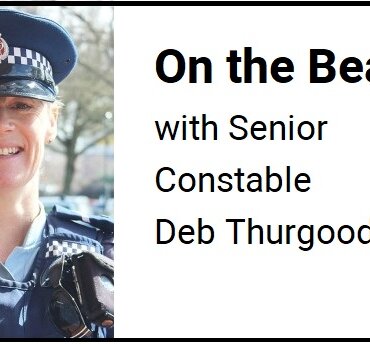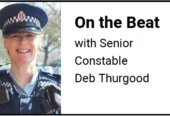
 I hope you have had good week. Today I want to talk about theft – the type of theft where you find something that is not yours, yet do not hand it in and rather keep it for yourself.
I hope you have had good week. Today I want to talk about theft – the type of theft where you find something that is not yours, yet do not hand it in and rather keep it for yourself.
A common example is if you see someone accidentally drop cash when they are out and about. When I was a child, we used to say, “finders keepers, losers weepers!”. That rule doesn’t actually hold true however. If you pick up the cash, put it in your pocket and do nothing other than that, not only is it the wrong thing to do, but you have committed the offence of theft. If you find personal property such as jewellery that has been dropped or pick up a cellphone the person in front of you leaves behind at a checkout and keep it, the same applies.
If the item you find is in a retail store or other premise, it may be appropriate to hand it into staff as the first point of call. The best approach however will be to hand it in to police. When you do so, we will take your details as the finder.
If unclaimed and should you wish, we can notify and return the item to you after a suitable time has passed allowing enquiries as to the true owner. In some cases, items will be auctioned off or destroyed as appropriate. A person must make every possible endeavour to find the owner of found property, or hand it to police. Posting on Facebook as some people do, can have a positive outcome, however not everyone is on Facebook, and there is the risk you may ‘return’ the item to someone other than the actual owner.
On a completely different topic, I also want to touch on driver licencing… or rather the suspension/disqualification of licences. There are three main categories under which a driver licence may become temporarily or indefinitely invalid: being forbidden, suspended or disqualified. I won’t go into all the various scenarios here, but regardless, in all three cases, if you are found driving while the restriction is in place, whichever car you are driving at the time will be impounded for 28 days and you will face either a fine (if forbidden) or a prosecution with associated penalties.
A conviction almost always leads to an extension of the period where you won’t be allowed to drive. The best action to take is to simply not resume driving, for any reason, until you legally can. This prevents you from getting into a circular pattern. Unlike a suspension or forbidden status, a disqualification is handed down by the courts. At the end of the disqualification period your licence will go into reinstate status. After a disqualification, you cannot resume driving legally until you have gone and applied for a new licence. For more information, got to www.nzta.govt.nz .








